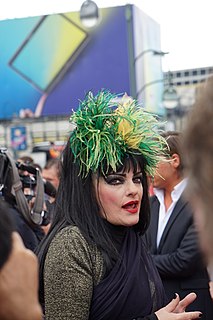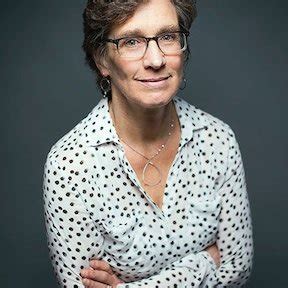A Quote by Michelle Dean
Summer is always a tricky time to recommend new literary fiction. The big releases do not hit until fall.
Related Quotes
The Booker thing was a catalyst for me in a bizarre way. It’s perceived as an accolade to be published as a ‘literary’ writer, but, actually, it’s pompous and it’s fake. Literary fiction is often nothing more than a genre in itself. I’d always read omnivorously and often thought much literary fiction is read by young men and women in their 20s, as substitutes for experience.
It remains a mystery to me why some of that [pulp] fiction should be judged inferior to the rafts and rafts of bad social [literary] fiction which continues to be treated by literary editors as if it were somehow superior, or at least worthier of our attention. The careerist literary imperialism of the Bloomsbury years did a lot to produce fiction's present unseemly polarities.
[Michael] Chabon, who is himself a brash and playful and ebullient genre-bender, writes about how our idea of what constitutes literary fiction is a very narrow idea that, world-historically, evolved over the last sixty or seventy years or so - that until the rise of that kind of third-person-limited, middle-aged-white-guy-experiencing-enlightenment story as in some way the epitome of literary fiction - before that all kinds of crazy things that we would now define as belonging to genre were part of the literary canon.
I went to school in California, at Stanford when I was seventeen, and I lived in San Francisco until I was twenty-three, and then I lived in Hungary for, like, a summer, and then I went to Iowa for three years. At Iowa, I actually did the fiction program, not poetry. I was a fiction writer for a long time before I was 'out' as a poet.
Everybody should read fiction… I don’t think serious fiction is written for a few people. I think we live in a stupid culture that won’t educate its people to read these things. It would be a much more interesting place if it would. And it’s not just that mechanics and plumbers don’t read literary fiction, it’s that doctors and lawyers don’t read literary fiction. It has nothing to do with class, it has to do with an anti-intellectual culture that doesn’t trust art.
About writing I learned that always, always, always it's necessary to haunt your settings. I'm a big researcher. All my fiction is based on tons of digging. But the vital importance of actually traveling to the settings of a novel really hit me. And it's not just the setting details, not just the visuals and other sensory data, that will pop. You'll find surprising clues that swerve your story in whole new, deeper, surprising, more organic ways.
Until you guys own your own souls you don't own mine. Until you guys can be trusted every time and always, in all times and conditions, to seek the truth out and find it and let the chips fall where they may—until that time comes, I have the right to listen to my conscience, and protect my client the best way I can. Until I'm sure you won't do him more harm than you'll do the truth good. Or until I'm hauled before somebody that can make me talk.
I think training your instinct comes from writing and reading. There's no big secret. And reading slush helps, as well; I'd recommend everyone edit a literary magazine at some point. It's time-consuming, but there's a lot to learn from other writers who are also learning. The patterns (twelve stories about whales in this batch?) are also interesting.
The provincial intellectual is doomed to arguing at low level... there is still no Australian literary world, not in Sydney, Melbourne, Adelaide. It is some consolation to realise that there is no literary world in Birmingham or Los Angeles either. I have heard there is one in Montreal, but I don't believe it. The literary world is in London and New York, the only cities big enough to sustain magazines which can afford to reject copy.

































